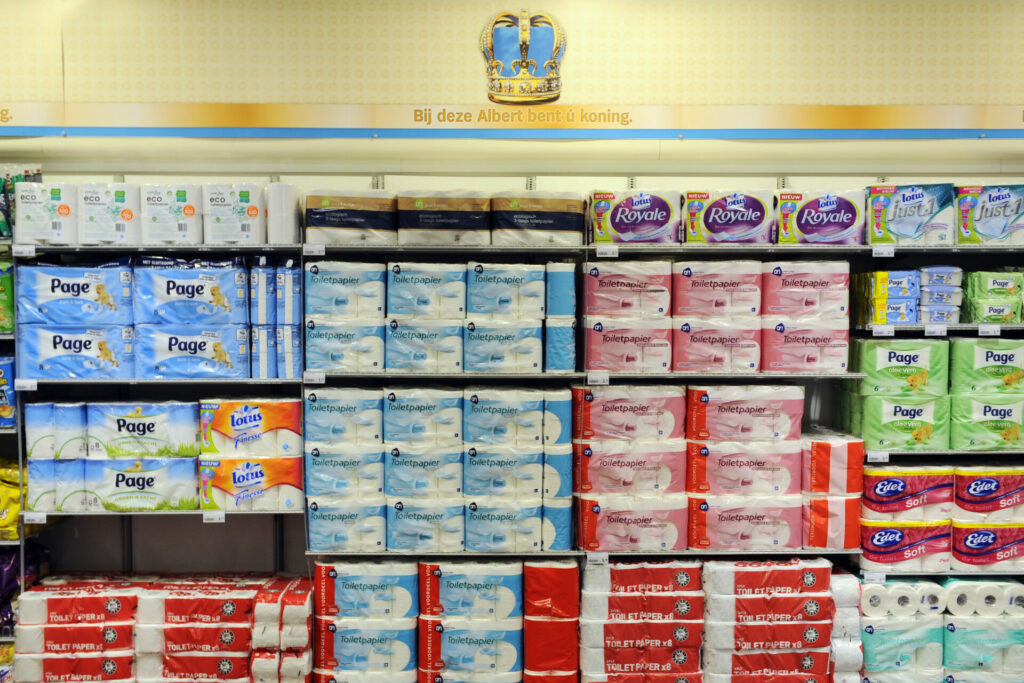Makers of toilet paper across Europe, including in Belgium, are facing rising costs and supply shortages as a result of rising energy prices and paper costs, De Tijd reports.
At the beginning of this month, German company and market leader Hakle wound up its business after struggling with the rising costs of paper together with energy for production. Several companies active in Belgium are facing similar problems.
The largest among them is Sofidel (Nalys, Cosinel), based in Duffel, where an employee described the situation as “hellish”. Kimberly Clark is second place on the market, followed by Liege-based Essity (Edel and Okay).
The paper problem
The problem is two-fold: the cost of paper pulp has risen by half in the past year; and the high cost of energy in the paper industry, which normally accounts for 10 to 15% of the cost of production, but which has in recent times risen to 50%. Considerable amounts of gas are used to dry out the new paper before it can be packaged.
To make matters worse, the branded products face tougher competition from supermarket own-brands which, while produced by the same factories, have the advantage of massive discounts for volume. Transport costs are also unsustainably high: a lorryload of kitchen roll takes up a full lorry but weighs comparatively little compared to other products.
As a result, an industry insider said that customers are increasingly making the shift to supermarket own-brands, while leaving luxuries like kitchen roll and paper hankies on the shelf. The producers tend to be shielded from the worst of the price compression, since the same factories produce both supermarket and brand name products.
Related News
- Thermal clothing sales boom in Belgium over high energy price fears
- Interactive: How much are your home appliances costing you?
According to one industry expert quoted by De Tijd, the product range has seen five price increases since last summer. For many consumers, a switch to cheaper brands has been inevitable. Products like kitchen paper are selling less and even essential products like toilet roll have seen a good deal of brand-shifting.
As a result, manufacturers are reducing their production, with positive effects on their energy bills, which helps offset higher energy costs. The failure of Hakle will now lead to increased production for some competitors.
No reason to stock up
The failure of one major player on the loo paper market shouldn't scare consumers to rush to stock up on paper; the gap in the market will be filled by other competitors, even if costs could fluctuate slightly.
"Hoarding is not necessary," assured Thomas Davreux, the general manager of umbrella federation Indufed. "Our members confirm that there will be no shortage of toilet paper in the coming months."
Supermarkets are not worried either. "There is still enough stock, but I cannot deny that prices are rising," says Roel Dekelver of Delhaize. "Some customers have already switched to the cheaper own brands." Colruyt does not expect immediate problems either: "The supply is still operating normally," says spokesperson Nathalie Roisin.

